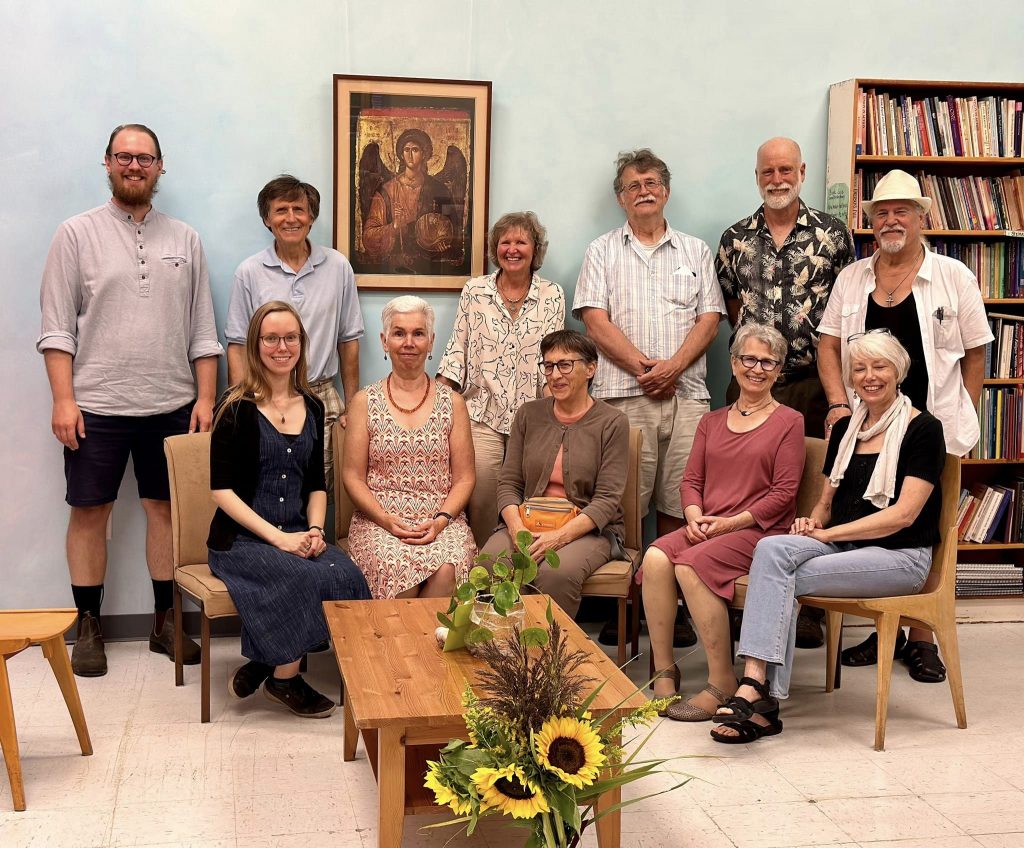
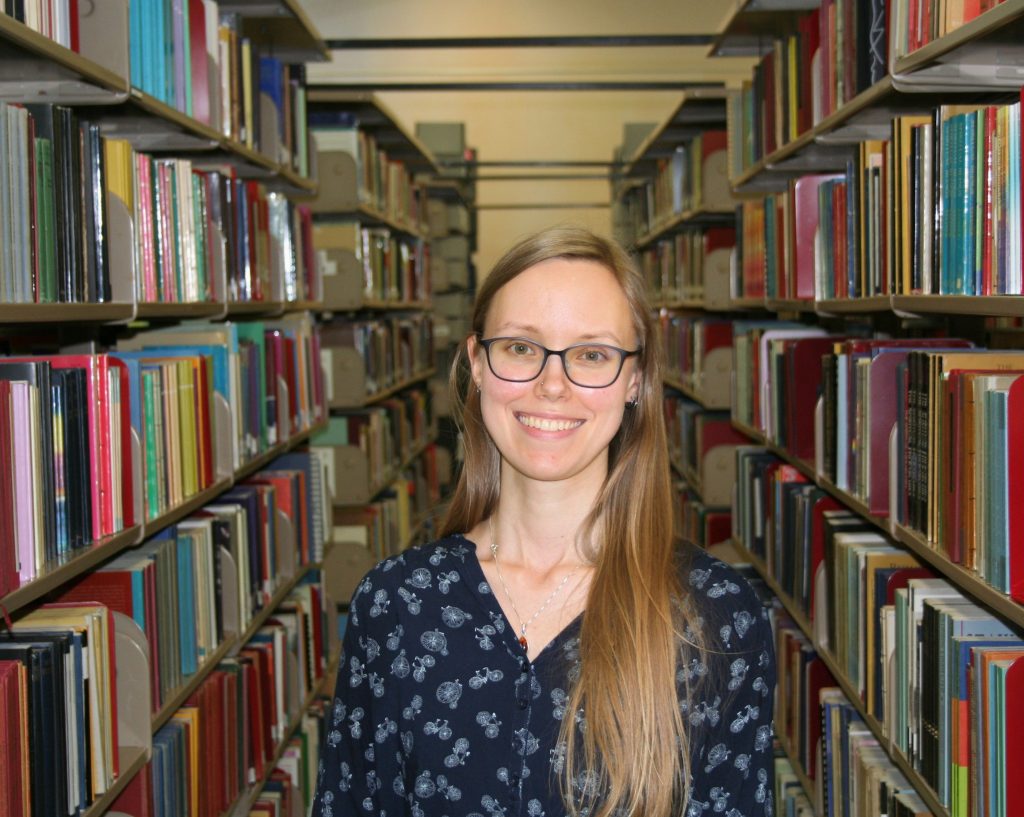
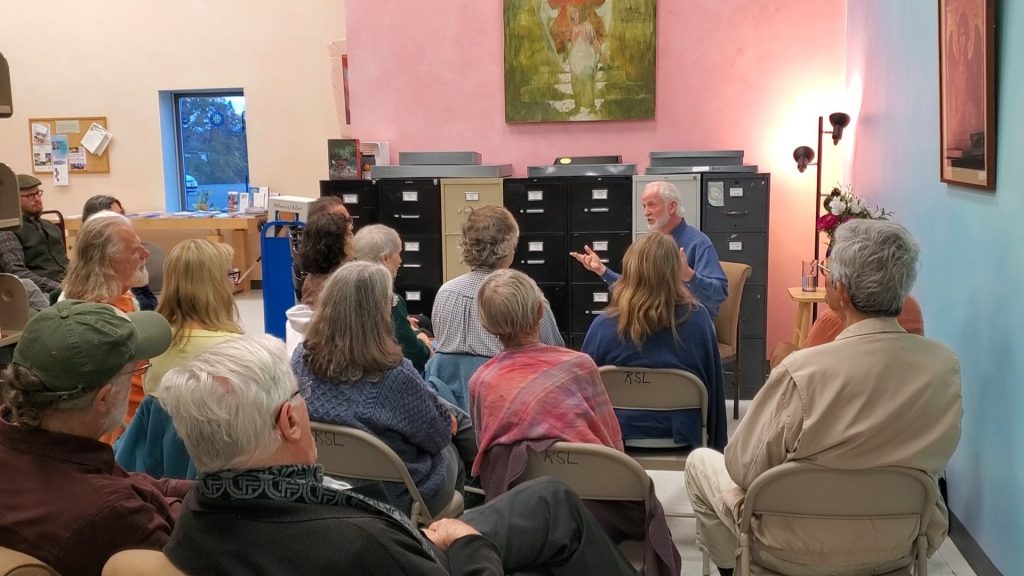
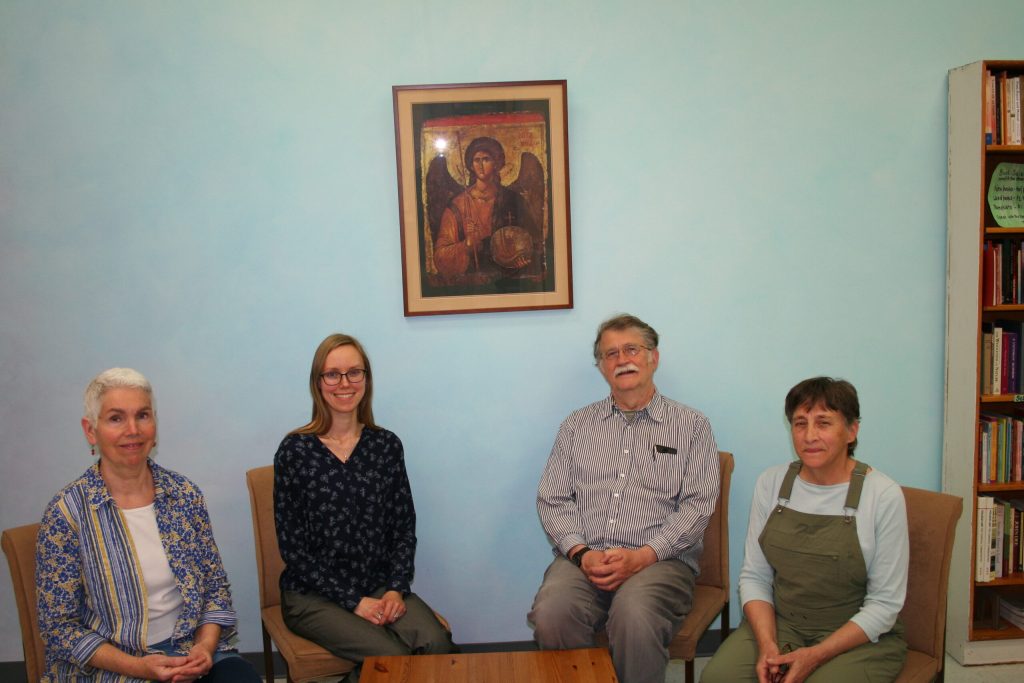
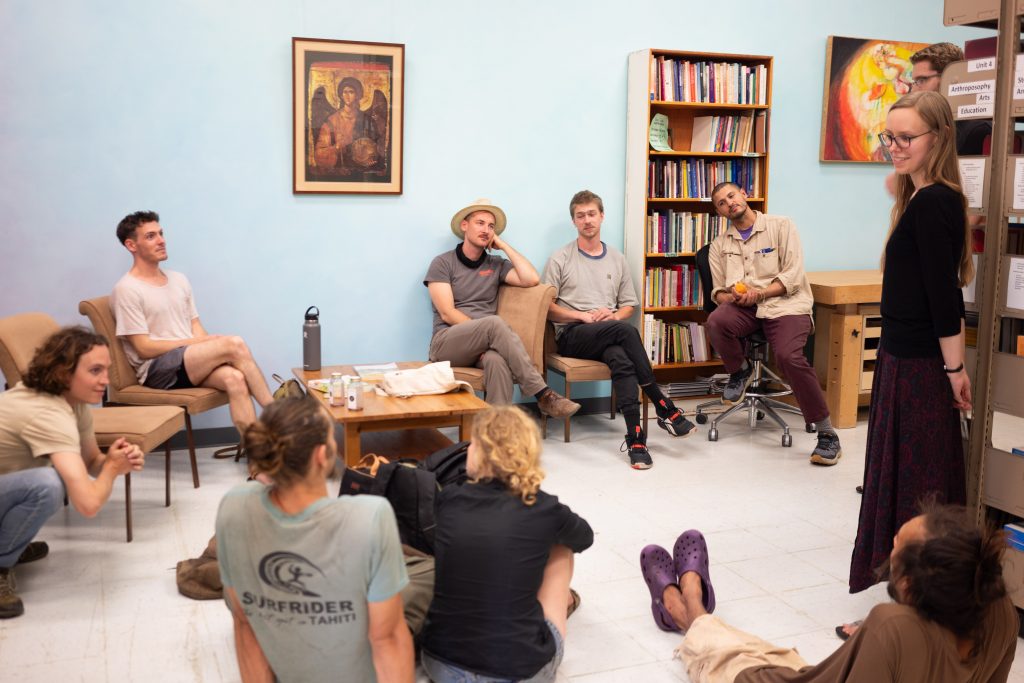
Who we are today
The core team at the library:
- Zoï Doehrer – Executive Director
- Luke Stence – Library Assistant
- Martin Miller – Volunteer Library Assistant
- Judith Kiely – Volunteer Librarian
The Rudolf Steiner Library Circle of Friends board members:
- Clifford Venho – President
- Christina Porkert – Secretary
- Karin Haldeman – Treasurer
- Zoï Doehrer – Recording Secretary (ex officio)
- Eric Müller – Member
The library’s origins
Written by Judith Soleil
There has been an anthroposophical lending library in the United States nearly as long as there have been anthroposophists. Pioneering member Caia Greene of the St. Mark’s Group created a lending library in New York around 1910 and “mailed books to interested persons all over the country and as far away as Honolulu….” In 1974, Fred Paddock began creating the library as we know it today.
Fred suggested that a true anthroposophical library, with philosophical works at its core, should also reflect anthroposophy’s calling to bring spiritual insights into various fields of activity: education, agriculture, medicine, the arts and sciences, philosophy, religion, and so on. His vision for the library was informed by a sense that the Anthroposophical Society’s future lies in “growing together with the world.”
So, as well as a complete collection of books and lectures by Rudolf Steiner in English and German, the library would also aim to collect all translated and original English-language works by other anthroposophical authors and a good selection of original anthroposophical works in German. The library would also carefully select some of the best non-anthroposophical books in areas where anthroposophists are strongly active, including those by thinkers that Steiner himself had studied and spoken about, such as Meister Eckhart and Jakob Boehme, and works by contemporary thinkers that Steiner would likely be reading were he alive today: for example, Richard Tarnas, Emmanuel Lévinas, Albert Borgmann, and Martha Nussbaum.
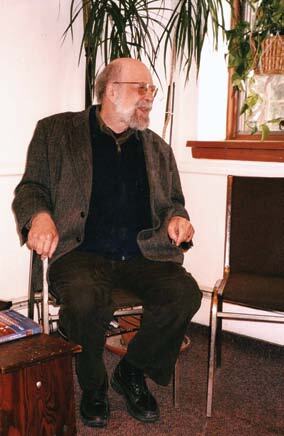
The library’s move from cramped quarters in Manhattan to Harlemville, New York, in 1982 allowed room for significant growth, and Fred Paddock enthusiastically began filling out the collection. He recognized that one of the library’s important tasks was to encourage and support anthroposophical initiatives such as Waldorf education and biodynamic agriculture.
As the library expanded, Fred recognized the emergence of an organizing structure that reflected the relationships among the different subject areas. He characterized these relationships as a living entity that asserted itself:
When you apply the concept of life, of livingness, to texts, what you are really referring to is conversation. I began to see that within the different sections, a conversation was going on… in the philosophy section… Descartes was carrying on a conversation with Scholasticism (and ultimately, with Thomas Aquinas). Aquinas was carrying on a conversation with Augustine and Aristotle; Aristotle was carrying on a conversation with Plato and Plato with Socrates, the pre-Socratics, and the poets. Proceeding from Descartes we hear the British empiricists, especially Hume, carrying on a conversation with Descartes, and hear Kant being “awakened from his dogmatic slumbers” by Hume. We then experience Hegel in deep conversation with Kant, and Marx conversing with Hegel. Nietzsche (as well as Montaigne and Pascal) can’t be understood outside his conversation with the great Stoic thinkers. And today, Heidegger can’t be grasped outside his struggles with Nietzsche, Kant, and the Greek thinkers… [E]ach of these thinkers was conversing with dozens of contemporaries and predecessors. The ancient texts remained alive because those who came after them, right up to our contemporaries, kept conversing (struggling, arguing) with them—interpreting them…. It was the living conversing with the dead that gave the dead life. If the conversation ceases, not only the current, most topical texts will be missing, but the early texts will begin to die because they depend upon the living to keep them alive through conversation.
Another significant step occurred in 1991 with the creation of the Rudolf Steiner Library Newsletter. It began with annotations and short reviews, and gradually included translations of articles from German anthroposophical journals and longer reviews of new acquisitions. In 2008, the content of the newsletter was incorporated into the society’s quarterly publication, Being Human.
Postscript by Zoï Doehrer
Fred Paddock retired in 2002, and the library was carried forward for many years by Judith Soleil and Judith Kiely. They cared deeply for the library, striving both to honor Fred’s vision and to modernize operations so that new generations might discover the library and benefit from its resources.
In 2013 the Carriage House at Fern Hill in Harlemville – the library’s home for 31
years – was sold, and the library relocated to its current site in Hudson, NY. In 2019 the stewardship of the library, including financial responsibility, was passed on from the Anthroposophical Society of America to the Rudolf Steiner Cultural Foundation and then subsequently transferred to the RSL Circle of Friends.
The RSL is a member of the Capital District Library Council and proudly shares resources with libraries across the world through participation in the Interlibrary Loan program through OCLC WorldShare. The library has an online public access catalog where anybody can browse the library’s 46,000+ holdings.
In 2023, Zoï Doehrer was appointed Executive Director, carrying forward the work of Fred P., Judith S., and Judith K. She brings a new focus on streamlining the
collection, revitalization, and increased outreach; striving to not only maintain and
expand this treasured national anthroposophical research, archival, lending, and mail-order library but also to make it a welcoming hub for anthroposophical
initiatives and research.
View the library’s catalog online at rsl.scoolaid.net. Questions? Email rsteinerlibrary@gmail.com or call (518) 944-7007.
